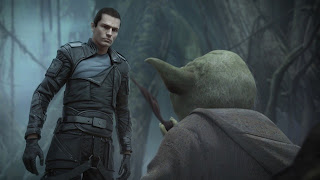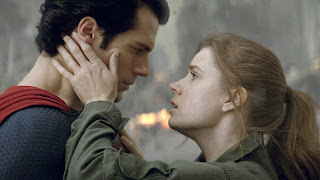Here we are again. Another Grand Theft Auto game hits shelves and the population of concerned parents, political pundits, and generally uninformed wusses takes up arms against the blanket-termed "violent video games."
I get it, violence is something that affects everyone the world over in some way shape or form. Whether it is all out war being waged in far away countries for questionable reasons, street violence, or even schoolyard bullying, I get.
I'll refrain from citing statistics, posting graphs of correlation (or lack thereof), and linking to stories that relate to the issue at hand. We've seen it all before (thought it would probably really drive my point home).
My issue, when it comes to video games and violence is the lack of responsibility that parents take in what their children do and see.
On every video game sold today, and for the better part of the last 20 years, there is a black and white rating on the cover. The ESRB ratings range from eC for Early Childhood, to the rarely used A for Adults Only, each with a content descriptor to inform/warn buyers of the content of their game.
Content descriptors include, but are not limited to, Blood, Language, Sexual Content, Nudity, Drug References and Simulated Gambling.
Every single entry in the Grand Theft Auto series have been rated M for Mature, save for the the Palm Pilot version of the original Grand Theft Auto and the Game Boy Color version of Grand Theft Auto 2.
So since 1997, which is when the series was first officially released, the series has been intended for gamers 17 years or older.
For the better part of the last 10 years, I've bought my games from GameStop, and I've both been carded when purchasing an M-rated game, and witnessed a cashier/sales associate ask a mother, who was buying an M-rated game, who the game was for and whether or not she was concerned about the violence depicted therein.
She brushed it off with an all-too-casual, "Oh my son plays those games all the time, it's nothing new."
I should mention that she specified her son was just nine years old, and she was buying Halo 2, which received an M-rating for Blood and Gore, Language and Violence.
Part of me wants to believe that mother was in-tune with her son's gaming habits, and was comfortable with him playing video games containing violence because she also took the time to discuss the real-world consequences of violent actions.
Part of me wants to believe she knows that merely playing something like Halo 2, where you're fighting against aliens in a futuristic setting, will not turn her son into a hyper-violent, sociopathic killing machine.
But I know that mother doesn't have the first clue about what her son is playing, and would be just as likely to say that Halo 2 is the reason he took those scissors and used them like that sword he used in the game to stab his best friend as she is to admit that the scissors shouldn't have been out for him to play with in the first place.
Maybe that's an overly simplistic scenario, but it speaks to the lack of responsibility parents have shown in the ongoing crusade against violence in video games.
These are the same people who crusaded for Parental Advisory labels on music containing "explicit lyrics," which in itself is overly vague and does nothing to solve their problem, and is often broadened to "explicit content."
"Explicit lyrics" could cover the sexual content of Ying Yang Twins' United States of Atlanta which features "Wait (The Whisper Song) and lyrics like "Fuck a bitch on da counter, make the plates fall back."
Or it could cover something as trivial as the album title, such as in the case of Frank Zappa's Jazz from Hell, which garnered a Parental Advisory label because of the word 'hell' in the album's title, and a song titled "G-Spot Tornado."
It didn't matter that the album was entirely instrumental, and thus featured no explicit lyrics or exploration of 'hell' or the 'g-spot' but the mere mention was enough to outrage the Parents Music Resource Center (PMRC), who are responsible for the action that led to the Parental Advisory labels for music.
The PMRC's list of songs, lovingly dubbed the Filthy Fifteen, includes a variety of genres, but harps on lyrical content like sex, masturbation, violence, language, occult, drug and alcohol use.
Among the list is Twisted Sister's anthemic "We're Not Gonna Take It," which is just 3 minutes and 38 seconds of stickin' it to the man, but was construed as promoting violence. I'm sorry, since when has standing up for what you believe in been an act of violence?
There's no distinct cause stated in the song, just a rebelliousness that apparently rubbed the more buttoned-down Tipper Gore the wrong way.
What makes it so frustrating is that the small sample of music completely ignores everything that has happened before, and judges the music of the time in a manner much different from the way and all other music before was judged.
Is Frank Sinatra's "Drinking Again" any less about alcohol use than Black Sabbath's "Trashed"? Granted, the latter is more detailed and specific, or dare I say EXPLICIT, in the descriptions of the use, or excessive use, but the content is largely the same.
The genre is at the heart of the issue, because metal is viewed as the Devil's music, and Frank Sinatra's just Ol' Blue Eyes singing about love, life and doing thing's his way....
... Not unlike Twisted Sisters "We're Not Gonna Take It" if you consider the simplest idea being conveyed. Sinatra reminisces about life and how he lived it HIS way, while Twisted Sister takes a more immediate approach, opting to yell and scream for being allowed to live life their way.
To the point, the Parental Advisory labels on music ignored just about everything regarding content, while placing blame on the musicians for conveying messages to their poor children.
The crux being the lack of responsibility parents take in the development of their children, and to facilitate that unwillingness to take blame, they point the finger at what their children watch, listen to, or play.
 Video games, by nature, offer a unique experience when compared to other forms of media. Music is strictly words conveying ideas. Movies bring in a visual element, where the words are played out in living color, with names and faces and characters to connect with. There's a direct narrative as opposed to the simple expression of ideas.
Video games, by nature, offer a unique experience when compared to other forms of media. Music is strictly words conveying ideas. Movies bring in a visual element, where the words are played out in living color, with names and faces and characters to connect with. There's a direct narrative as opposed to the simple expression of ideas.
Video games put you in control of all of those things, which is the distinction that seems to put the opposition off the most.
Being in control of murder, crime and mayhem is somehow different from listening to a song about a drive-by, or a woman who'll "show you a good time" or watching a movie where someone get's their hand cut off with a lightsaber, or a couple making whoopie on camera.
Being in control is akin to learning to do these things, or so they would have you believe, and is thus inherently more detrimental than anything else that has faced this type of scrutiny.
It all goes back to responsibility.
An 8-year-old shot the old woman who was watching him after supposedly playing a violent video game, reportedly GTA IV. Like clockwork, we got the token finger-pointing at video games being the cause of all the violence in the world, which ignores the much bigger issue of why the 8-year-old had access to a gun in the first place.
I've played video games for close to 21 years, dating back to Super Mario World and The Legend of Zelda: A Link to the Past, through Grand Theft Auto: San Andreas and Manhunt, the latter of which had its sequel rated AO.
I also grew up watching things like Mighty Morphin' Power Rangers, Dragon Ball Z, seeing movies like Terminator 2 at the ripe old age of 6, and being exposed to an array of music with varying lyrical content.
 |
| So I posted ONE graph... Sue me |
If the majority of people in the world can be exposed to all of these things and still not indulge in those flights of fancy the fear-mongers would have you believe is SO influential, why do we still have these endless discussions of the detrimental effects of violence in video games and the (lack of) correlation to actual violence?
No one wants to take responsibility, everyone wants someone to blame, and that's not the way the world works. I don't envy anyone who has lost someone due to violence, but I do not think that blaming one form of media or another is the solution to the problem.
Next thing you know, we'll be hearing about Harry Potter influencing children to practice the occult....



































